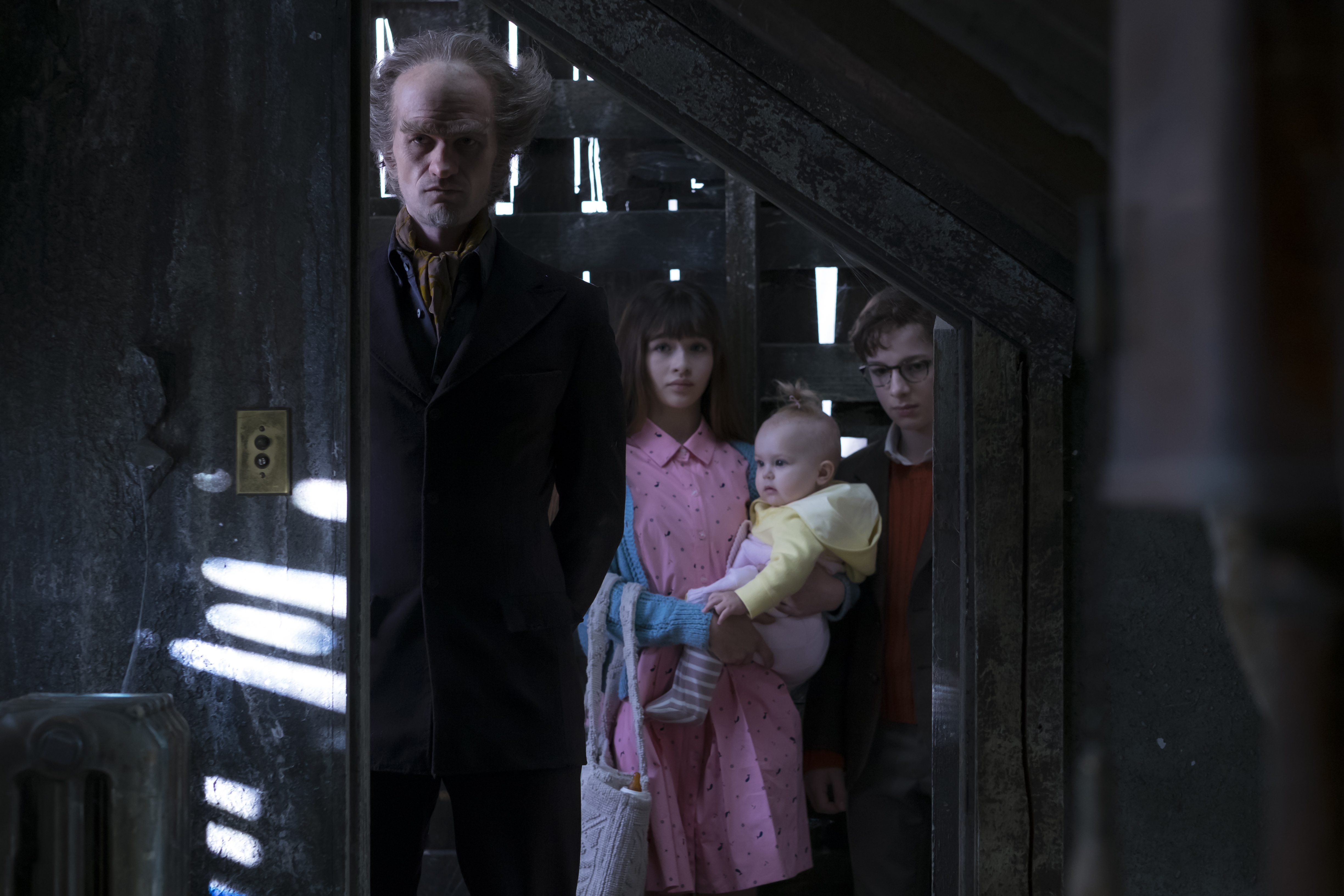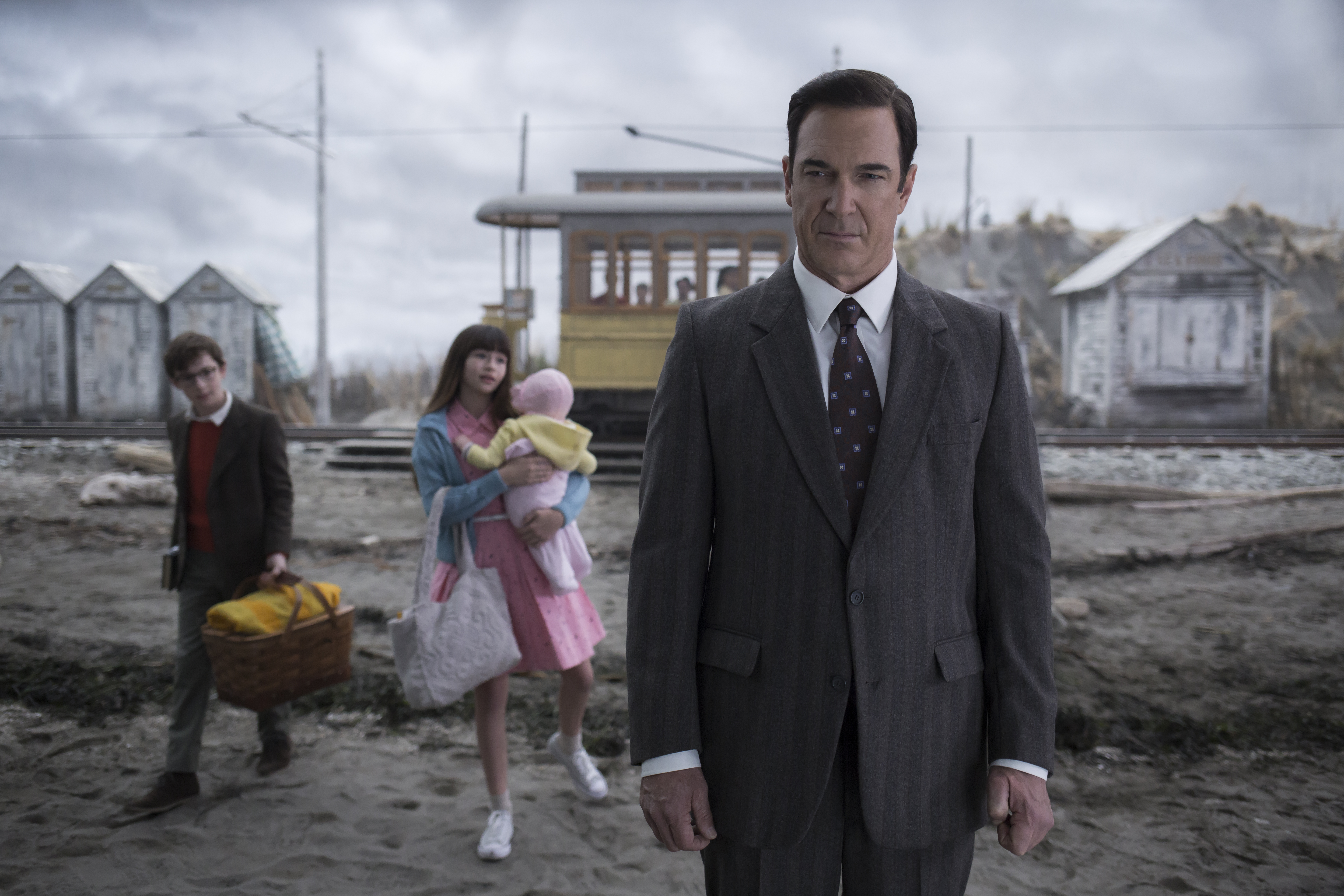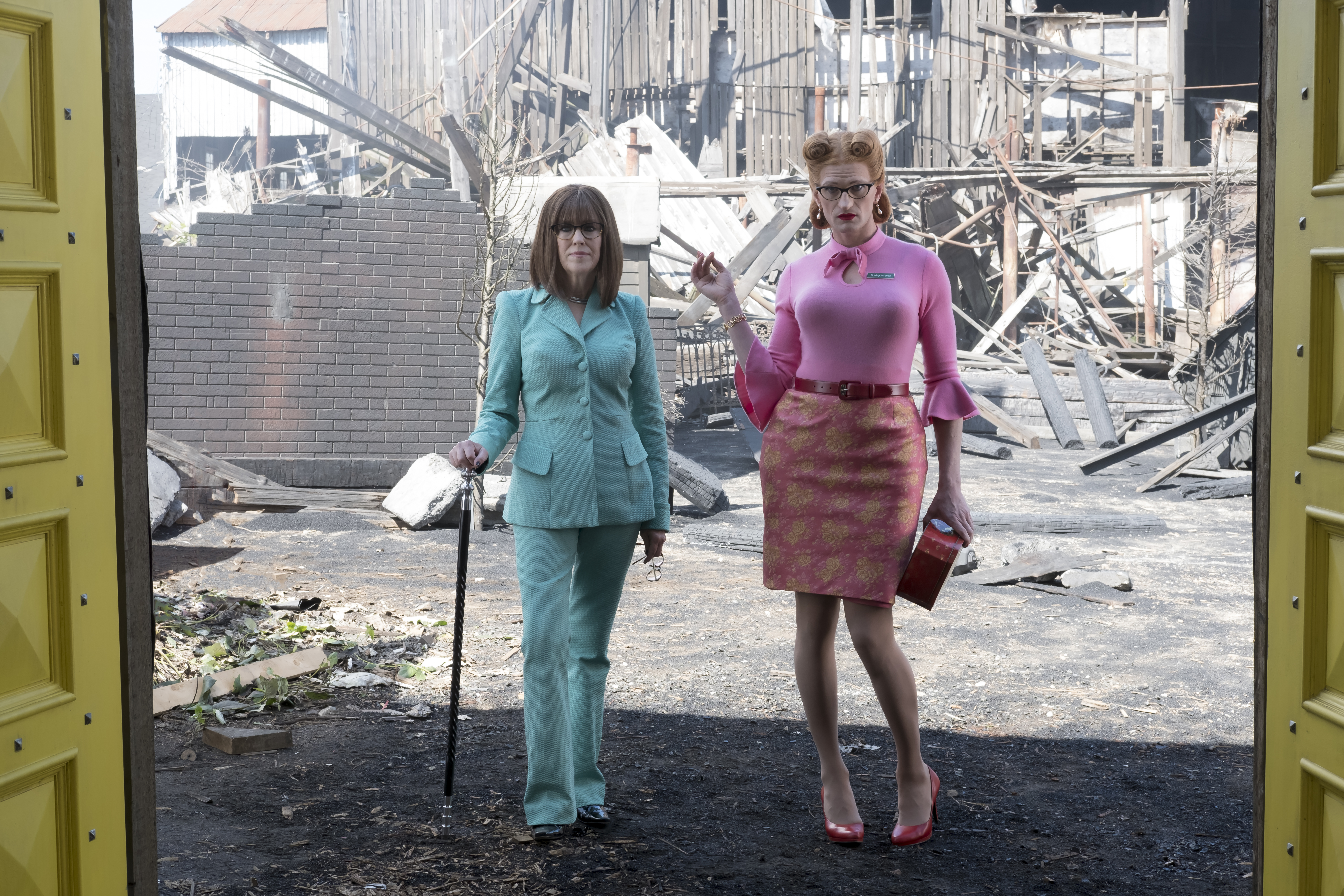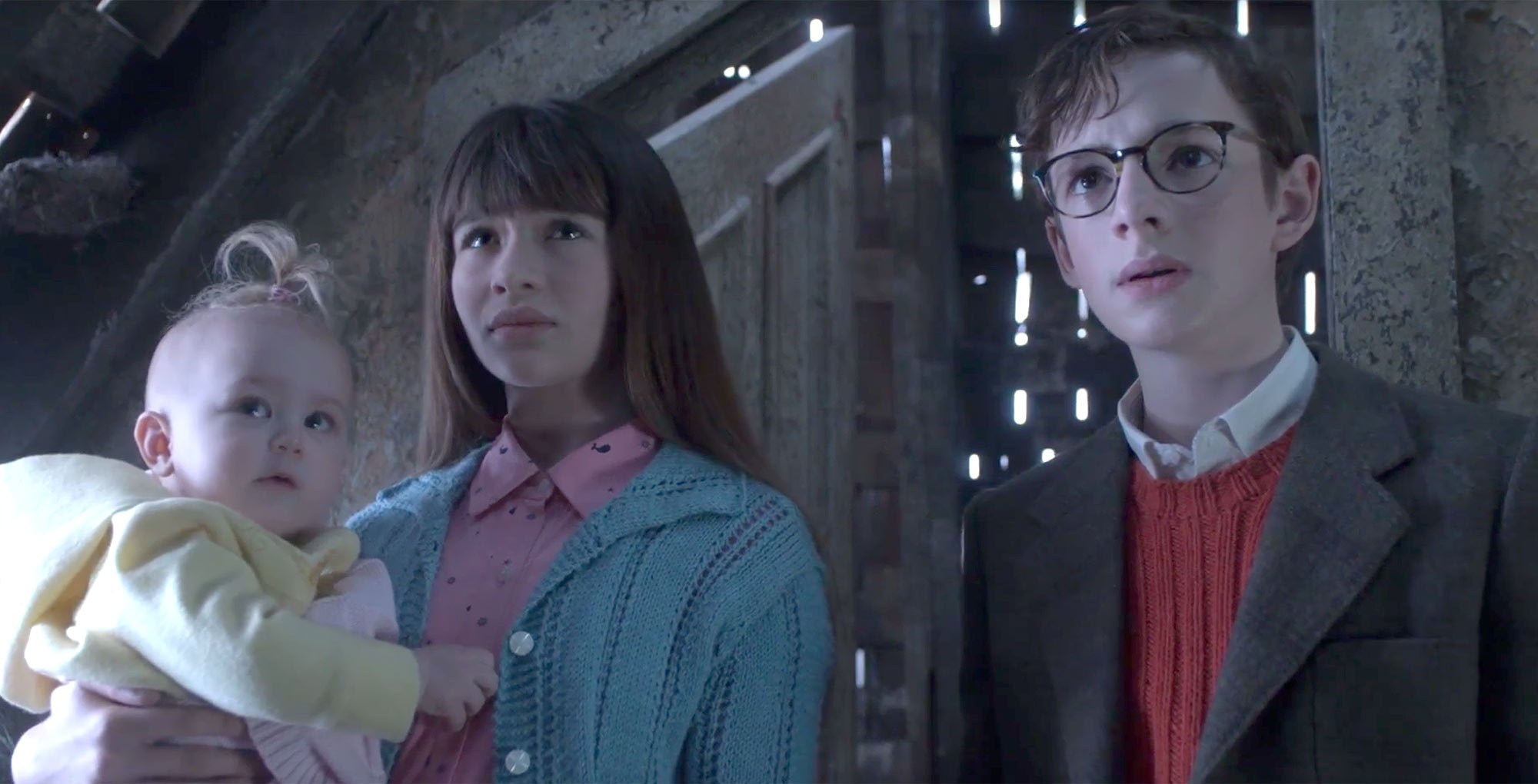By Jorge Molina
In keeping with the explicit warnings of the show's opening theme song, a warning of my own: I tried to approach this objectively but the emotional ties I have with the original book series are too strong to separate from my enjoyment of the show. If you’re looking for an impartial take on the Netflix's adaptation of A Series of Unfortunate Event, look away! If you’re looking for a passionate dissection by a Millennial, please continue reading after the jump...

I was eight years old when the original book series by Lemony Snicket came out. I devoured all thirteen of them, along with the additional books in the Baudelaire universe. There are many reasons why they were one of the most formative media in my life: It was a series about precocious kids (like myself) trying to survive in a quick-witted, dangerous adult world (like myself). They were all about language and playing with format and having a unique voice, which had a definitive impact on my taste; the movies and television shows I admire the most follow those same principles. Inventive escapism can make you feel safe, understood, and passionate about your quirks and whims.
The 2004 movie starring Jim Carrey and Meryl Streep was a good if floundering attempt at bringing the books to life. But A Series of Unfortunate Events was always meant to be serialized. It’s right there on the title. And Netflix has made a worthier adaptation.
The show knows its source material back and forth, understandable given that author Daniel Handler (a.k.a. Lemony Snicket) wrote almost every episode and serves as an executive producer. The first four books are split into two 40-to-60 minute episodes, which allows every detail, line, and small subplot to get a place and make my heart jump at even the smallest Easter egg. Even the conspiracy mystery aspect, which played a smaller role in the books, is enlarged here, giving an added layer of mature Scooby-Doo-ness.

But the show also expands its universe beautifully into the visual medium. It’s a world that is not quite our world, where houses hang from cliffs, and carnivorous leeches break through a sailboat, and statues come to life. I applaud the efforts of the entire team behind the scenes for committing to creating such a distinct universe that is splattered with acronyms, alliterations, and odd-shaped buildings.
Barry Sonnenfeld may have had a couple of rough years lately (his latest movie was the Kevin-Spacey-as-a-cat vehicle Nine Lives), but plays wonderfully to his strengths again. Please remember that he directed both of the Addams Family movies in the early nineties, and the visual and narrative legacy of those shine brightly here.
But the series is more of a spiritual successor to ABC’s tragically short-lived 2007 dramedy Pushing Daisies, which Sonnenfeld also directed and executive produced. They are both series about darkness in a pastel-colored world where characters talk eloquently and foulness abounds. There’s wit, and charm behind deadpan, and intricately orchestrated shots.

Neil Patrick Harris is a very hit-or-miss performer, but here he manages to capture both the evil and the natural foolishness of Count Olaf in a very effortless (dare I say charming?) way. Patrick Warburton is wonderful as the most unreliable of narrators. The three children do well with the large amounts of lines they are given, and most of the time they're easy to buy as far more clever than the adults. But the most delightful performances are by the parade of guest actors and actresses who truly give their all to embody weird beings in an even weirder world: Joan Cusack, Alfre Woodward, Catherine O’Hara, as well as Will Arnett and Cobie Smulders, who are the best new-to-the-show additions.
The show is worth watching for all of these reasons. It’s entertaining. It’s a fast watch. It has an undeniable voice and style that could only be its own, and that is one of the qualities most worthy of admiration in any media. If the series does lag towards the repetitive second half, that's something that the books also suffered from until book seven, so perhaps it won't be a problem for season two.

But what I enjoyed most as I binge-watched was seeing Violet once again be forced to marry Count Olaf, or Klaus being hypnotized in the mill, or Sunny playing with the incredibly deadly viper; it immediately brought me back to how I felt reading the books for the first time as a kid. This Lemony Snicket plays right into the hearts of former fans like myself, almost to a fault. (Perhaps the show will shine less bright in the eyes of non-initiated viewers?)
Listening the actors speaking the words that were so seamlessly picked up from the books, and seeing the locations take life, I felt like I was in middle school again, safe and protected from the evil world around me, buried in this land of big words and theatrical villains, amazed and fascinated and totally immersed in the unfortunate lives of the Baudelaire orphans. And that is something that I, and I’m guessing many others, really need right now.